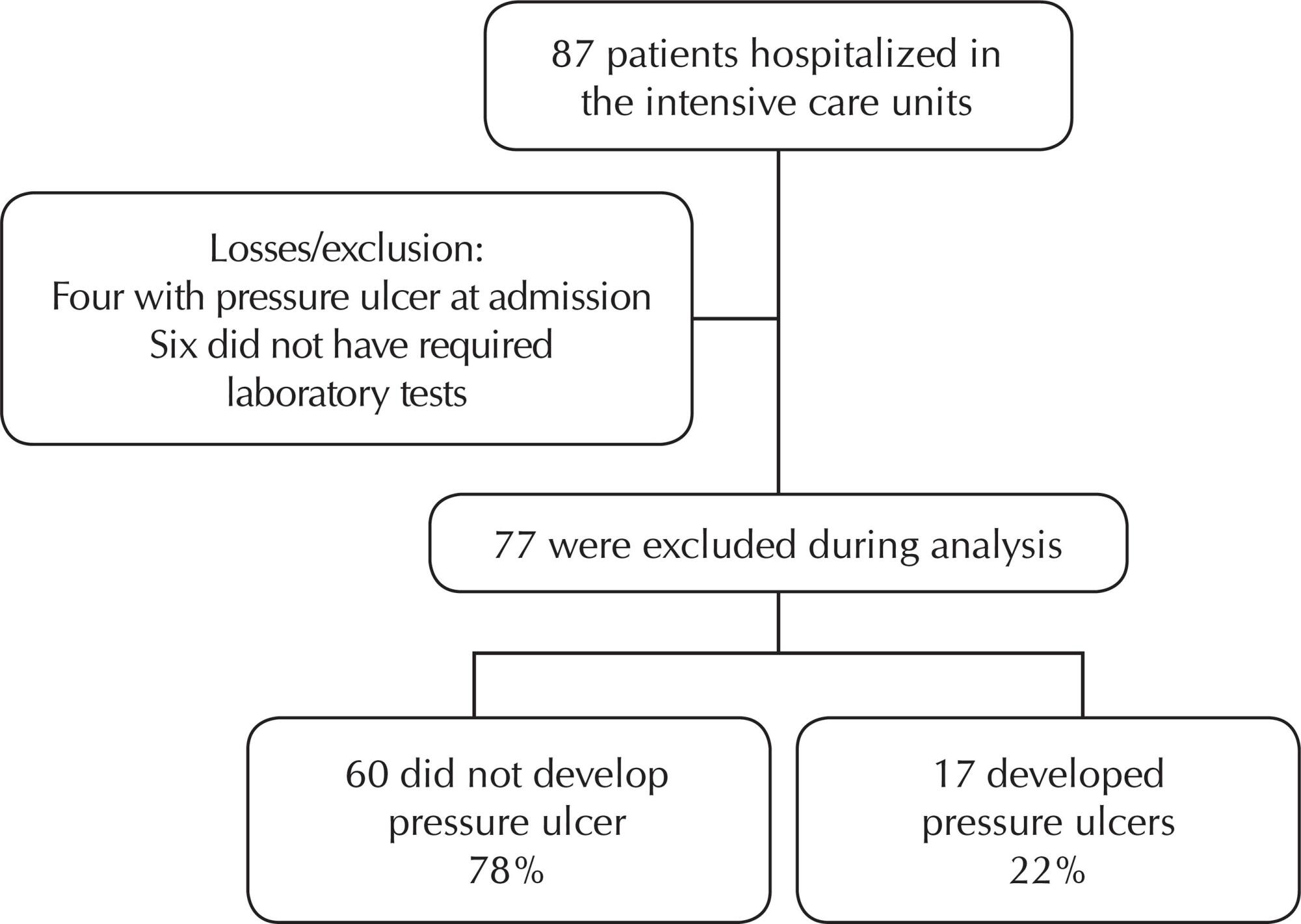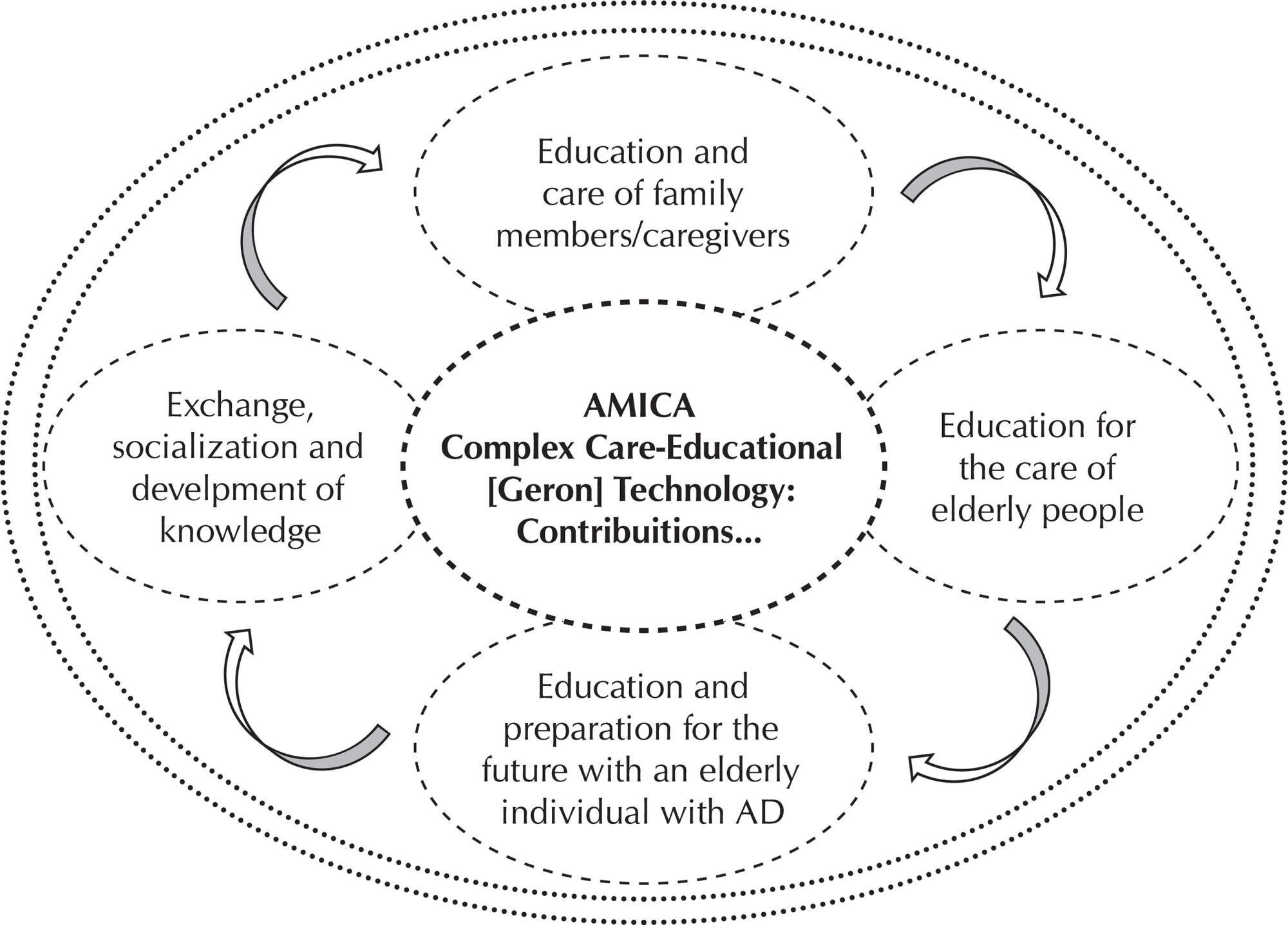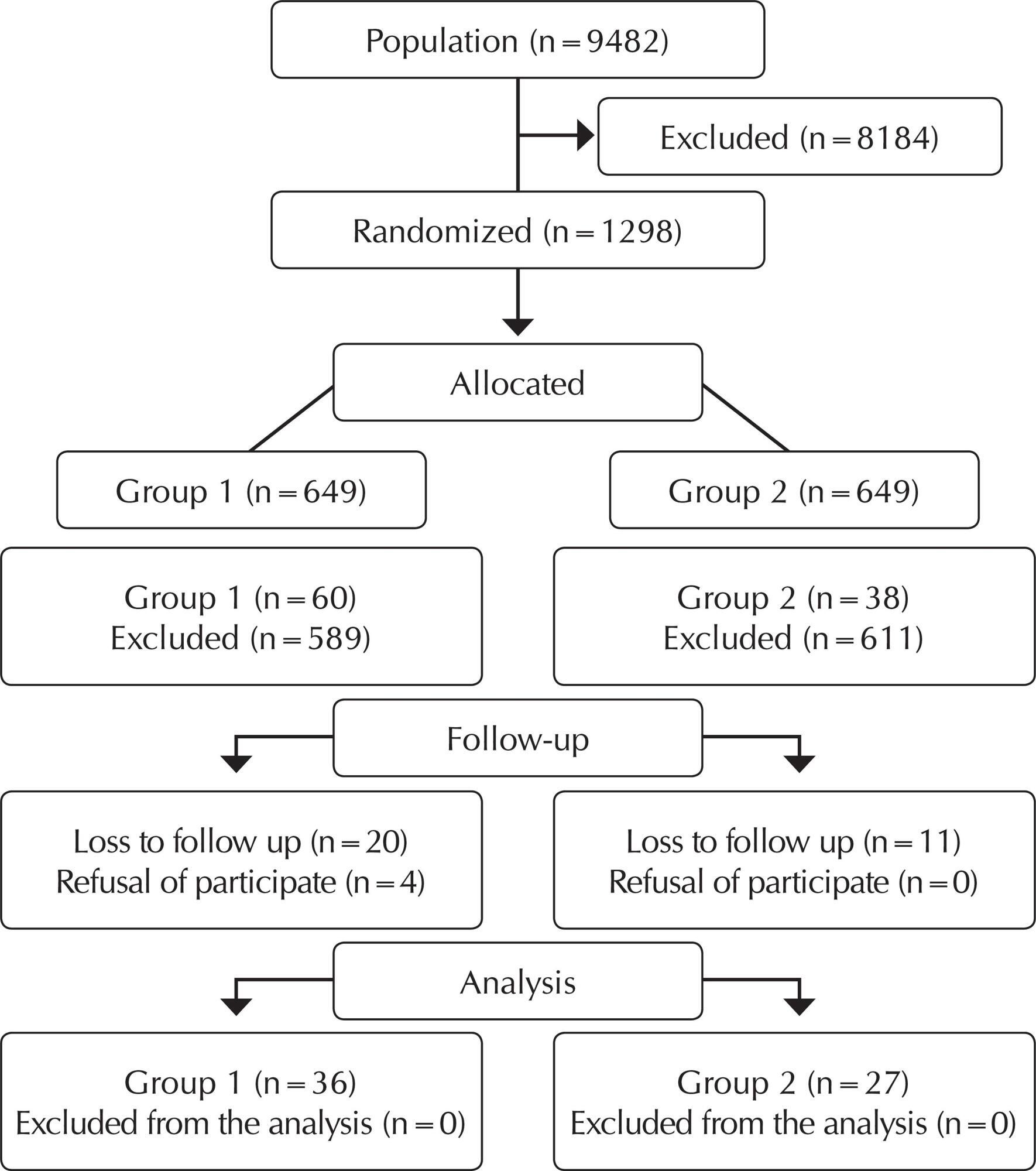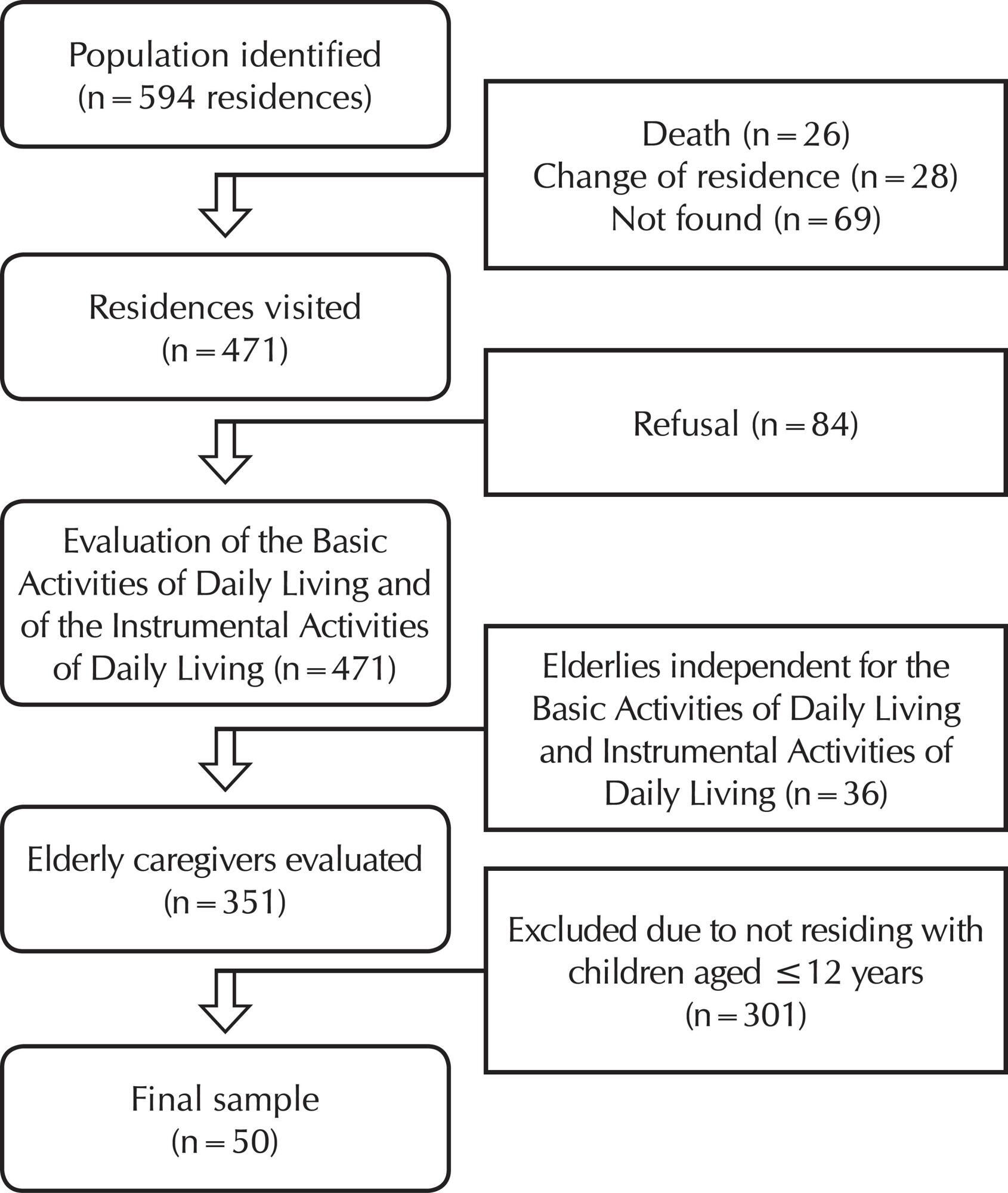-
01-01-2016
Association between self-care and hospital readmissions of patients with heart failure
Revista Brasileira de Enfermagem. 2016;69(3):500-506
Abstract
Association between self-care and hospital readmissions of patients with heart failure
Revista Brasileira de Enfermagem. 2016;69(3):500-506
DOI 10.1590/0034-7167.2016690312i
Views0See moreABSTRACT
Objective:
to assess the association between self-care and the number of hospital readmissions of patients with heart failure (ADHF) and test the applicability of two self-care assessment tools. longitudinal study, performed in a cardiology reference hospital in southern Brazil.
Method:
it included 82 patients with a mean age of 61.85±12.33 years, 57.3% male. The mean score of self-care assessment found the scales European Heart Failure Self-care Behavior Scale and Self-care Scale for Patients with Heart Failure was unsatisfactory.
Results:
it was observed an average of 2.57±1.66 rehospitalization last year for decompensated heart failure. There was a correlation between self-care scores with the number of hospital readmissions for decompensated HF. Education and age were associated to self-care of HF patients.
Conclusion:
both scales assess self-care in a relevant way, and correlated their indexes.
-
01-01-2016
Knowledge management in Portuguese healthcare institutions
Revista Brasileira de Enfermagem. 2016;69(3):492-499
Abstract
Knowledge management in Portuguese healthcare institutions
Revista Brasileira de Enfermagem. 2016;69(3):492-499
DOI 10.1590/0034-7167.2016690311i
Views0See moreABSTRACT
Objective:
to evaluate the perception of healthcare institution collaborators in relation to knowledge management in the institution where they operate and analyze the existence of differences in this perception, based on the institution’s management model.
Method:
a study conducted in a sample consisting of 671 collaborators from 10 Portuguese healthcare institutions with different models of management. In order to assess the knowledge management perception, we used a score designed from and based on items from the scores available in the literature.
Results:
the perception of moderate knowledge management on the healthcare institutions and the statistically significant differences in knowledge management perception were evidenced in each management model.
Conclusion:
management knowledge takes place in healthcare institutions, and the current management model determines the way staff at these institutions manage their knowledge.
-
01-01-2016
Social impairment of patients undergoing hematopoietic stem cell transplant
Revista Brasileira de Enfermagem. 2016;69(3):484-491
Abstract
Social impairment of patients undergoing hematopoietic stem cell transplant
Revista Brasileira de Enfermagem. 2016;69(3):484-491
DOI 10.1590/0034-7167.2016690310i
Views0See moreABSTRACT
Objective:
to evaluate the impairment of social and emotional domains of hospitalized patients undergoing hematopoietic stem cells transplantation.
Method:
an observational, longitudinal study with 25 participants evaluated in the period of pre-transplant, pancytopenia and pre-hospital discharge between September 2013 and September 2014, in a reference hospital for this treatment modality in Brazil. Two international instruments were used, both of which translated and adapted to Portuguese (Brazil): Quality of Life Questionnaire-Core 30 and Functional Assessment Cancer Therapy – Bone Marrow Transplantation.
Results:
patients have shown a statistically significant decrease in the social domain, and stability of the emotional function along the course of treatment.
Conclusion:
hematopoietic stem cell transplantation changes the social function of patients with hematologic cancer during hospitalization stage. Thus, patients should receive guidance addressing the social domain in order that it can be less affected.
-
01-01-2016
Frailty and quality of life in elderly primary health care users
Revista Brasileira de Enfermagem. 2016;69(3):478-483
Abstract
Frailty and quality of life in elderly primary health care users
Revista Brasileira de Enfermagem. 2016;69(3):478-483
DOI 10.1590/0034-7167.2016690309i
Views1See moreABSTRACT
Objective:
to investigate the association between physical frailty and quality of life in elderly users of primary health care in the capital of the state of Paraná.
Method:
a cross-sectional, quantitative study with 203 elders. Data collected included: physical activity questionnaires, weight loss, fatigue/exhaustion, quality of life, performance of gait speed tests, and handgrip strength.
Results:
of the 203 older adults, 115 were pre-frail, 49 were non-frail, and 39 were frail, with a significant association with functional capacity and quality of life in all groups. The dimensions resulting from physical aspects, pain, and vitality were associated with those that were non-frail.
Conclusion:
in this study, frailty syndrome was inversely proportional to the quality of life, and significantly associated with functional capacity of older adults. Physical frailty is a manageable condition which can be targeted through geriatric nursing interventions.
-
01-01-2016
Impact of home visits on the functional capacity of patients with venous ulcers
Revista Brasileira de Enfermagem. 2016;69(3):468-477
Abstract
Impact of home visits on the functional capacity of patients with venous ulcers
Revista Brasileira de Enfermagem. 2016;69(3):468-477
DOI 10.1590/0034-7167.2016690308i
Views0See moreABSTRACT
Objective:
to assess the impact of protocol home visits on the functional capacity of adult and elderly patients with venous ulcers, before and after guidance received at home.
Method:
clinical experimental, randomized, nonblinded and controlled study, developed with 32 patients (case and control groups). Fields of research were the Wound Outpatient Care Unit of the Antônio Pedro University Hospital and households of patients treated in the outpatient unit. Data collection occurred from February to June 2014, by means of an assessment tool of the health care unit, the TINETTI index and a script for directions to be provided to study participants who received home visits.
Results:
participants in the case group showed significant and differentiated improvement post-intervention when compared to the control group, which remained stable.
Conclusion:
directions provided in the home context were beneficial to the members of the case group.
-
01-01-2016
Pressure ulcers in critically ill patients: incidence and associated factors
Revista Brasileira de Enfermagem. 2016;69(3):460-467
Abstract
Pressure ulcers in critically ill patients: incidence and associated factors
Revista Brasileira de Enfermagem. 2016;69(3):460-467
DOI 10.1590/0034-7167.2016690307i
Views0See moreABSTRACT
Objective:
to identify the incidence and describe the associated factors for pressure ulcers in critically ill patients.
Method:
this was a prospective cohort study with 77 patients, using a clinical, metabolic assessment and the associated factors for pressure ulcer, applying the risk scales (Braden and Waterlow) and assigning ulcers to categories.
Results:
an incidence of 22% (95% CI 12.6 – 31.5), with 17 patients with 32 pressure ulcers in the sacral region (47%), and of Class I (72%). The length of stay was greater than ten days (71%), most admissions were surgical (53%) or for congestive heart failure (24%), and were high risk on the Braden Scale (59%).
Conclusion:
the study highlights the high incidence of pressure ulcers, clinical and metabolic characteristics and associated factors, as well as the outcome of death, requiring, therefore, preventive measures.

-
01-01-2016
Accreditation in a public hospital: perceptions of a multidisciplinary team
Revista Brasileira de Enfermagem. 2016;69(3):451-459
Abstract
Accreditation in a public hospital: perceptions of a multidisciplinary team
Revista Brasileira de Enfermagem. 2016;69(3):451-459
DOI 10.1590/0034-7167.2016690306i
Views1See moreABSTRACT
Objective:
to analyze the perceptions of the multidisciplinary team on Accreditation in a public hospital.
Method:
descriptive, exploratory, qualitative research, performed in May 2014, using recorded individual interviews. In total, 28 employees of a public hospital, Accredited with Excellence, answered the guiding question: “Tell me about the Accreditation system used in this hospital”. The interviews were transcribed and subjected to content analysis.
Results:
of the speeches, three categories emerged: Advantages offered by the Accreditation; Accredited public hospital resembling a private hospital; Pride/satisfaction for acting in an accredited public hospital.
Conclusion:
participants perceived Accreditation as a favorable system for a quality management in the public service because it promotes the development of professional skills and improves cost management, organizational structure, management of assistance and perception of job pride/satisfaction.
-
01-01-2016
Health status and the return to work after traffic accidents
Revista Brasileira de Enfermagem. 2016;69(3):443-450
Abstract
Health status and the return to work after traffic accidents
Revista Brasileira de Enfermagem. 2016;69(3):443-450
DOI 10.1590/0034-7167.2016690305i
Views0See moreABSTRACT
Objective:
to compare the health status of traffic accident victims, at hospital discharge and after six months, and to analyze the predictive variables of their health status and return to work.
Method:
observational, longitudinal study. Data were collected through interviews and medical records of 102 patients with a mean age of 33 years; with the majority being men and victims of motorcycle accidents. The variables were analyzed by means of validated tools, student’s t-test, multiple linear regression, and logistic regression.
Results:
there was an improvement of perception in the patients’ health status six months after hospital discharge and functional capacity. The individuals who returned to work showed better health-related quality of life evaluation.
Conclusion:
improvement of the perceived health status six months after hospital discharge was found. Factors that influenced the patients’ return to work were not identified.
-
01-01-2015
Quality of life and physical activity in intensive care professionals from middle São Francisco
Revista Brasileira de Enfermagem. 2015;68(1):26-31
Abstract
Quality of life and physical activity in intensive care professionals from middle São Francisco
Revista Brasileira de Enfermagem. 2015;68(1):26-31
DOI 10.1590/0034-7167.2015680104i
Views0See moreObjective:
the objective was to assess the level of physical activity (LPA) and the quality of life QL of the professionals who work in ICU.
Method:
this was a cross-sectional study carried out in Adult ICUs. LPA was assessed by the International Questionnarie of Physical Activity – short form (IQPA-SF) and the QL by the Medical Outcomes Study 36 (SF-36) questionnaire.
Results:
it was classified active 50.89% out of a total of 59 professionals. Nursing technicians were considered the most active with 60.6%. The QL of the professionals who were considered active were better when compared to inactives, with statistical differences to the category of physical aspects limitation, social aspects and mental health. The working hours were higher than recommend, the physicians were higher than the physical therapist, nurses and technicians nurses (p = 0.046).
Conclusion:
physically active professionals who work in ICU had higher quality of life probably why have lower hours of work and consequently more free time to engage in physical activity.

-
01-01-2015
Learning needs of Nursing students in technical vocational education
Revista Brasileira de Enfermagem. 2015;68(1):20-25
Abstract
Learning needs of Nursing students in technical vocational education
Revista Brasileira de Enfermagem. 2015;68(1):20-25
DOI 10.1590/0034-7167.2015680103i
Views0See moreObjective:
identify learning needs of students of Technical Vocational Education (TVE) in Nursing. Qualitative study conducted in a city of São Paulo state.
Method:
the subjects were students, teachers and coordinators of TVE and students of the bachelor degree who have had contact with TVE. Data collection was performed by questionnaire socioeconomic and cultural circles about the learning needs. For data analysis we used the content analysis.
Results:
it was found that students have difficulties contents not related to nursing as portuguese and mathematics, as well as introductory courses in the course of TVE which possibly may interfere negatively in learning specific content of nursing and the quality of health care.
Conclusion:
it is necessary to rethink the content taught and ways to teach from basic education, as well as the training of teachers who now works in the TVE.
-
01-01-2015
Serious game e-Baby: nursing students’ perception on learning about preterm newborn clinical assessment
Revista Brasileira de Enfermagem. 2015;68(1):13-19
Abstract
Serious game e-Baby: nursing students’ perception on learning about preterm newborn clinical assessment
Revista Brasileira de Enfermagem. 2015;68(1):13-19
DOI 10.1590/0034-7167.2015680102i
Views0See moreObjective:
to evaluate students opinion regarding e-Baby educational technology.
Methodology:
exploratory descriptive study in which participated a sample composed of 14 nursing Portuguese students that used e-Baby digital educational technology in an extracurricular course. To achieve the aim of the study, the data collection was realized through an opinion instrument in Likert scale including the possibility of commentaries by students. Is was also collected data of participants’ characterization.
Results:
students made very satisfactory evaluations regarding the game e-Baby, varying since usability acceptation through suggestions of expansion of the game to other nursing themes.
Conclusion:
serious game e-Baby can be considered a didactic innovation and motivator tool of learning. Besides, it demonstrates have adequate interface in design and educative function aspects, evocating intense interaction between user and computational tool.

-
01-01-2015
Challenges beyond the scientific knowledge production
Revista Brasileira de Enfermagem. 2015;68(1):7-8
Abstract
Challenges beyond the scientific knowledge production
Revista Brasileira de Enfermagem. 2015;68(1):7-8
DOI 10.1590/0034-7167.2015680101p
Views0For several decades, innumerous appeals and reflections on how to build the nursing science and achieve visibility in the scientific world led researchers to make efforts to produce knowledge that contributed to the well-being of people, improving their quality of life, relieving their suffering and transforming the reality in which we live. In addition to […]See more
-
RESEARCH01-01-2017
Complex educational and care (geron)technology for elderly individuals/families experiencing Alzheimer’s disease
Revista Brasileira de Enfermagem. 2017;70(4):726-732
Abstract
RESEARCHComplex educational and care (geron)technology for elderly individuals/families experiencing Alzheimer’s disease
Revista Brasileira de Enfermagem. 2017;70(4):726-732
DOI 10.1590/0034-7167-2016-0687
Views0See moreABSTRACT
Objective:
To describe the contributions of the Integrated Multidisciplinary Care Group for Caregivers of Individuals with Alzheimer’s Disease as an educational and care (geron)technology in the context of Alzheimer’s disease in elderly individuals from the perspective of family members/caregivers.
Method:
Exploratory, descriptive study with a qualitative approach conducted with 13 family members/caregivers of elderly people participating in the support group of a university institution of the state of Rio Grande do Sul, Brazil. Data collected between January and April 2016 through a semi-structured interview were submitted to discursive textual analysis.
Results:
Family members/caregivers pointed out education and care as contributions of the group; education for care and for the future; exchange, socialization, and development of knowledge through the range of knowledge existing in the Group.
Conclusion:
The Group contributes as a (geron)technology of care and education for care in which knowledge is built and applied in practice, supporting the experienced disorders and improving the quality of care provided for elderly individuals with Alzheimer’s disease.

-
RESEARCH01-01-2017
Falls in institutionalized older adults: risks, consequences and antecedents
Revista Brasileira de Enfermagem. 2017;70(4):719-725
Abstract
RESEARCHFalls in institutionalized older adults: risks, consequences and antecedents
Revista Brasileira de Enfermagem. 2017;70(4):719-725
DOI 10.1590/0034-7167-2017-0107
Views0See moreABSTRACT
Objective:
To analyze the occurrence of falls in institutionalized elderly addressing the risks, consequences and antecedents.
Method:
Cross-sectional study carried out with 45 older adults in Long-Term Care Facilities for the Older adult in João Pessoa, Brazil, in June and July 2016. A socio-demographic questionnaire and the Berg Balance Scale were applied, classifying as risk of fall scores lower than 45. Descriptive statistics and tests were conducted: independent t-test, Anova (Tukey), Chi-square, Mann Whitney. Statistically significance was p <0.05. Data were processed in SPSS version 19.0.
Results:
A total of 66.7% (30) falls occurred, 20% (9) of them in the external area, with 66.7% (30) of the participants having hypertension as a previous disease and, as consequence, the fracture was highlighted with 11.2% (5). The Berg Scale had different scores when compared to the falls suffered by the elderly and previous diseases influenced the occurrence of falls (p <0.05).
Conclusion:
It is necessary to implement public financing policies or partnerships that allow environments adaptations aiming at reducing the risks of falls.
-
RESEARCH01-01-2017
Factors associated with the functional capacity of older adults with leprosy
Revista Brasileira de Enfermagem. 2017;70(4):711-718
Abstract
RESEARCHFactors associated with the functional capacity of older adults with leprosy
Revista Brasileira de Enfermagem. 2017;70(4):711-718
DOI 10.1590/0034-7167-2017-0091
Views0See moreABSTRACT
Objective:
to investigate the association between socio-demographic and clinical factors and the functional capacity of older adults with leprosy.
Method:
cross-sectional analytical study conducted in Fortaleza, Ceará, Brazil, with 77 older adult patients with leprosy in a referral service, through interview, medical records and application of the Katz Index and the Lawton and Brody Scale.
Results:
the mean age was 68.23 years, with prevalence of men, in stable union/married, with mean monthly family income of 2.04 minimum wages, positive bacillary index, clinical dimorphic form and grade zero disability. In the Lawton and Brody scale, independence (58.5%) was predominant and associated to the variables “living arrangement” and “educational attainment”. Total independence (87.0%) was predominant in the Katz Index and statistically associated to the variable monthly family income.
Conclusion:
most of the participants were classified as independent in the instruments used. Furthermore, the instruments pointed to a greater number of associations with socio-demographic and clinical factors not related to leprosy.
-
RESEARCH01-01-2017
Effects of supportive telephone counseling in the metabolic control of elderly people with diabetes mellitus
Revista Brasileira de Enfermagem. 2017;70(4):704-710
Abstract
RESEARCHEffects of supportive telephone counseling in the metabolic control of elderly people with diabetes mellitus
Revista Brasileira de Enfermagem. 2017;70(4):704-710
DOI 10.1590/0034-7167-2017-0089
Views0See moreABSTRACT
Objective:
the purpose of this study was to evaluate the efficacy of telephone-based support for the metabolic control of elderly patients with diabetes mellitus.
Method:
a pragmatic study was conducted in two groups, called G1 (n=36) and G2 (n=27), at a health unit from the countryside of São Paulo state. Patients in G1 group received telephone support over four months, through 16 telephone contacts with educational material; for the G2 group the educational material was mailed.
Results:
significant differences were found. The G1 group showed a reduction of the parameters of fasting glucose, as well as systolic and diastolic blood pressure. In G2 group a modest reduction was noted in some parameters, with no significant difference.
Conclusion:
telephone support was effective to deliver patient education to the diabetic elderly, leading to the reduction of fasting blood glucose. This, combined with other strategies, can contribute to reduce glycated hemoglobin (NCT 01972412).

-
RESEARCH01-01-2017
Stress and optimism of elderlies who are caregivers for elderlies and live with children
Revista Brasileira de Enfermagem. 2017;70(4):697-703
Abstract
RESEARCHStress and optimism of elderlies who are caregivers for elderlies and live with children
Revista Brasileira de Enfermagem. 2017;70(4):697-703
DOI 10.1590/0034-7167-2017-0088
Views0See moreABSTRACT
Objective:
to evaluate the relation between stress and optimism of elderlies who are informal caregivers for elderlies and live with children.
Method:
cross-sectional study on 50 elderlies who provide care to elderlies, live with children, and are registered in the primary health care. The interviews occurred in the participant’s residence and we evaluated characteristics of the care-dependent elderly and of the children, sociodemographic characteristics, stress through the Perceived Stress Scale and optimism through the Pinto and Pais-Ribeiro Spirituality Scale, in the elderly caregiver. For statistical analysis we used the Spearman correlation test.
Results:
the mean level of stress was 23.9 points and of optimism was 3.3 points. Correlation analysis showed that the higher the level of optimism the significantly lower the level of perceived stress of elderlies who provided care to elderlies and lived with children.
Conclusion:
inversely proportional correlation was identified between stress and optimism.

-
RESEARCH01-01-2017
Spiritual well-being and quality of life of older adults in hemodialysis
Revista Brasileira de Enfermagem. 2017;70(4):689-696
Abstract
RESEARCHSpiritual well-being and quality of life of older adults in hemodialysis
Revista Brasileira de Enfermagem. 2017;70(4):689-696
DOI 10.1590/0034-7167-2017-0006
Views0See moreABSTRACT
Objective:
To analyze the relationship between spiritual well-being, sociodemographic, economic, religious, and health variables and the quality of life of older adults undergoing hemodialysis.
Method:
This was a cross-sectional and correlational study conducted with 169 older adults undergoing hemodialysis. The researchers conducted interviews to collect sociodemographic, economic, religious, and health data and applied the Spiritual Well-Being Scale (SWBS) and the WHO quality of life assessment (WHOQOL-BREF and WHOQOL-OLD).
Results:
Most of the older adults attained a moderate level of total spiritual well-being (SWB). In terms of QOL, the psychological domain (66.8; sd=13.9) and social relationships domain (66.8; sd=15.1) presented the highest mean scores. The WHOQOL-BREF domains were positively correlated with the SWB scale, with statistical significance among all domains and subscales except the environmental domain.
Conclusion:
The QOL of older adults was associated with the construct of SWB, either positively or negatively.
-
RESEARCH01-01-2017
Vulnerability of caregivers of the elderly with dementia: a cross-sectional descriptive study
Revista Brasileira de Enfermagem. 2017;70(4):682-688
Abstract
RESEARCHVulnerability of caregivers of the elderly with dementia: a cross-sectional descriptive study
Revista Brasileira de Enfermagem. 2017;70(4):682-688
DOI 10.1590/0034-7167-2016-0579
Views0See moreABSTRACT
Objective:
to evaluate the sociodemographic and clinical profile of the caregivers and its relation with the overburden from the care of the elderly with dementia.
Method:
a cross-sectional descriptive study; the sample was non-probabilistic, developed with caregivers of elderly people with dementia. The field of investigation was the Health Care Center of the Elderly and their Caregivers (CASIC), in the city of Niterói, Rio de Janeiro, Brazil. Data collection took place from February to June 2016, with the following instruments: a sociodemographic questionnaire and Zarit scale.
Results:
fifty percent of the caregivers presented moderate overburden; 38% presented little overburden; and 12% moderate/severe overburden. It was observed that the median of weekly care hours increases as the overburden increases. Caregivers with moderate to severe overburden, in the majority, do not share care.
Conclusion:
it is clear that the overburden of care places the caregiver in conditions of biological and psychological vulnerability.
-
RESEARCH01-01-2017
Therapeutic nursing care: transition in sexuality of the elderly caregiving spouse
Revista Brasileira de Enfermagem. 2017;70(4):673-681
Abstract
RESEARCHTherapeutic nursing care: transition in sexuality of the elderly caregiving spouse
Revista Brasileira de Enfermagem. 2017;70(4):673-681
DOI 10.1590/0034-7167-2016-0256
Views0See moreABSTRACT
Objective:
To understand the transitions experienced, and the conditions and expected response patterns to changes in sexuality of the spouse-caregiver of the elderly, during progression of the dementia process.
Method:
A qualitative research study, conducted at the neurogeriatric clinic between May of 2014 and May of 2015. An intensive, individual interview was administered to 12 elderly caregivers. Thematic content analysis was applied, using the theoretical model of Transition Theory.
Results:
Seven categories emerged, involving relationship and conjugal sexuality; disease repercussions; care and professional approach; attitudes, beliefs and social imagery of sexuality and care; family relationship and redefining of sexuality.
Final considerations:
Family development and marital life, the aspects of formation and development of sexuality, the specifics that involved living and caring for the other were understood, with successive events and changes influenced by old age, dementia, beliefs and social imagery.
Search
Search in:
Nuvem de Tags
Adolescente (85) Atenção Primária à Saúde (239) COVID-19 (91) Criança (91) Cuidados de Enfermagem (269) Educação em Enfermagem (151) Educação em Saúde (139) Enfermagem (930) Enfermagem Pediátrica (86) Estudantes de Enfermagem (77) Estudos de Validação (131) Família (87) Idoso (208) Promoção da Saúde (99) Qualidade de Vida (104) Saúde do Trabalhador (86) Saúde Mental (145) Saúde Pública (82) Segurança do Paciente (150) Tecnologia Educacional (100)



